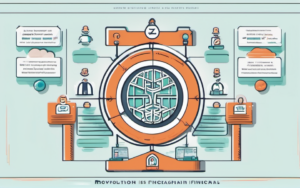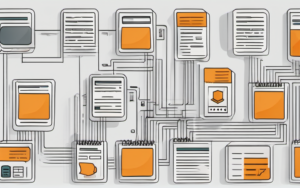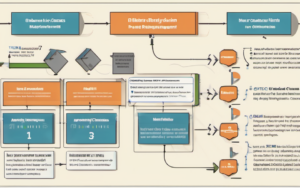Imagine a world where every product you buy has a clear and traceable history, from its origin to your doorstep. This is the promise of blockchain technology, and it’s revolutionizing the way we think about supply chains. Blockchain supply chains offer unprecedented transparency, efficiency, and security, creating a new era of trust and accountability.
The Power of Blockchain in Supply Chain Management
What is Blockchain?
Blockchain is a distributed ledger technology that records transactions in a secure and transparent manner. Think of it as a shared, immutable database that can be accessed by multiple parties. Each block in the chain contains a record of transactions, and these blocks are linked together chronologically, creating a permanent and tamper-proof history.
How Blockchain Works
The magic of blockchain lies in its decentralized nature. Instead of relying on a single central authority, data is shared across a network of computers. Every time a transaction occurs, it is validated and added to the blockchain by multiple participants, making it extremely difficult to alter or manipulate. This decentralized approach eliminates the need for intermediaries, streamlining processes and reducing costs.
Benefits of Blockchain for Supply Chains
Blockchain offers a range of benefits for supply chain management, including:
- Enhanced Traceability: Each product can be tracked throughout its journey, from raw materials to finished goods, providing complete visibility into the supply chain.
- Increased Transparency: All participants have access to real-time information about the product’s origin, movement, and condition, fostering trust and accountability.
- Reduced Fraud and Counterfeiting: The immutability of blockchain makes it difficult to tamper with records, preventing fraud and counterfeiting.
- Improved Efficiency: Streamlined processes and reduced paperwork lead to faster delivery times and lower costs.
- Enhanced Security: Securely encrypted data and decentralized storage protect sensitive information from cyberattacks.
Real-World Examples of Blockchain in Action
Tracking Food Products
Blockchain is being used to track food products from farm to table, ensuring their safety and provenance. Consumers can use mobile apps to scan a product’s unique code and learn about its origin, growing conditions, and transportation history.
Managing Pharmaceutical Supply Chains
Blockchain is helping to combat counterfeit drugs by providing a secure and transparent record of the drug’s journey. This technology allows manufacturers, distributors, and regulators to track the movement of drugs, ensuring their authenticity and safety.
Improving Transparency in the Diamond Industry
Blockchain is being used to track diamonds from their source to the retailer, ensuring ethical sourcing and preventing the trade of conflict diamonds. Consumers can trace the origin of their diamonds and be confident that they are ethically sourced.
Challenges and Opportunities
Scalability and Interoperability
One challenge of blockchain is scalability. As more participants join the network, the blockchain can become larger and slower. Interoperability, the ability for different blockchain networks to communicate with each other, is also crucial for widespread adoption.
Data Privacy and Security
While blockchain is inherently secure, data privacy remains a concern. Regulating data access and ensuring the protection of sensitive information is essential.
Adoption and Integration
The adoption of blockchain in supply chains requires significant changes to existing systems and processes. Overcoming resistance to change and ensuring seamless integration with existing infrastructure is crucial for successful implementation.
The Future of Blockchain in Supply Chains
Increased Efficiency and Automation
Blockchain will continue to drive automation and efficiency in supply chains. Smart contracts, self-executing agreements stored on the blockchain, will automate processes, reducing manual intervention and errors.
Enhanced Traceability and Transparency
Blockchain will become the standard for tracking products, providing unprecedented transparency and accountability across supply chains. Consumers will be able to make informed decisions based on the full history of the products they purchase.
New Business Models and Partnerships
Blockchain will create new business models and partnerships, enabling collaboration between different stakeholders in the supply chain. This will lead to more efficient and resilient supply chains that can better respond to disruptions.
The transformative power of blockchain supply chains is undeniable. As the technology continues to evolve, we can expect to see even more innovative applications and benefits that will reshape the way we produce, distribute, and consume goods. The future of supply chains is bright, and blockchain is leading the way.




